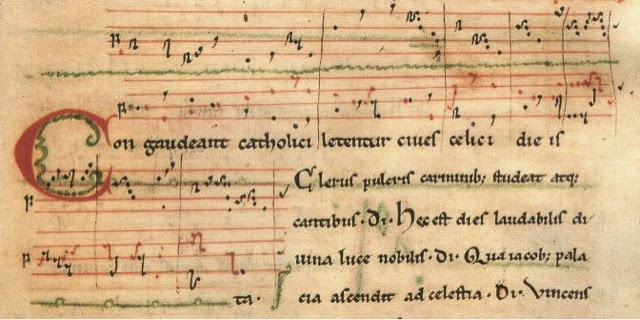The Codex Calixtinus is a 12th-century illuminated manuscript formerly attributed to Pope Callixtus II, though now believed to have been arranged by the French scholar Aymeric Picaud. The principal author is actually given as 'Scriptor I'.
It was intended as an anthology of background detail and advice for pilgrims following the Way of St. James to the shrine of the apostle Saint James the Great, located in the cathedral of Santiago de Compostela, Galicia (Spain). The codex is alternatively known as the Liber Sancti Jacobi, or the Book of Saint James. The collection includes sermons, reports of miracles and liturgical texts associated with Saint James, and a most interesting set of polyphonic musical pìeces. In it are also found descriptions of the route, works of art to be seen along the way, and the customs of the local people.
The book was stolen from its security case in the cathedral's archives on 3 July 2011 and retrieved almost exactly a year later on 4 July 2012.
The Codex Calixtinus was intended to be chanted aloud and is of great interest to musicologists as an early example of polyphony. In particular, it contains the first known composition for three voices, the conductus Congaudeant catholici (Let all Catholics rejoice together); however, the extreme dissonance encountered when performing all three voices together has led some scholars to suggest that this was not the original intention. The popularity of the music has continued to the present day with modern recordings commercially available.
Congaudeant Catholici
O Adiutor Seculorum
Coro de Monjes del Monasterio de Santo Domingo de Silos (1969)
Ad Vesperas Sancti Iacobi
Ensemble Organum. Dir, Marcel Pérès




No comments:
Post a Comment